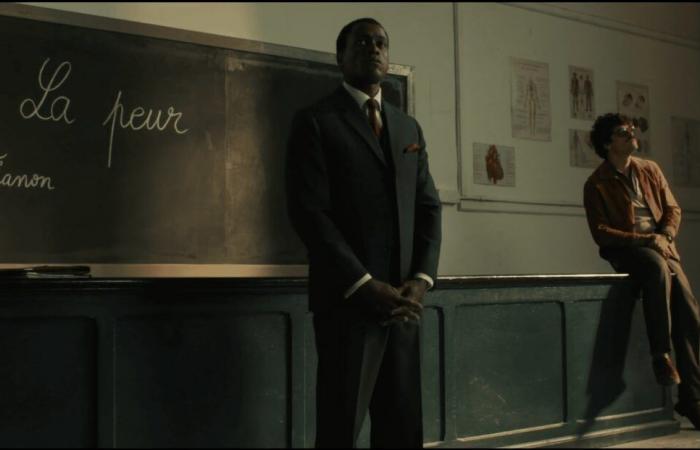With “Fanon”, Jean-Claude Barny tackles a colossal challenge: giving body and soul to Frantz Fanon, psychiatrist, writer and revolutionary activist. The Guadeloupean director, known for his committed cinema, delivers here an ambitious work which explores not only the life of this exceptional man, but also the impact of his ideas on our contemporary world.
From the first images, Barny sets a sober but emotionally charged framework. The film does not just line up significant events: it strives to weave an intimate and sensitive portrait of Fanon, played by Alexandre Bouyer. The actor, whose uncanny resemblance to Fanon is striking, displays a range of emotions which anchors the character in a deep humanity. His performance, subtle and powerful, captures the doubts, struggles and determination of the Martinican hero.
The film’s narrative structure departs from the linear conventions of traditional biopics. Barny opts for a staging that alternates between past and present, mixing the decisive moments of Fanon’s life, his role in the Algerian war of independence, his reflections on psychiatry, and his visionary writing, with contemporary scenes that resonate with his heritage. This bold choice anchors the subject in burning news, making Fanon’s messages more relevant than ever.
Visually, Barny relies on elegant and careful photography, oscillating between warm, earthy tones to evoke the landscapes of Algeria and the West Indies, and darker palettes for moments of introspection. The tight frames on Fanon’s face emphasize his intellectual and emotional intensity, while the wide shots magnify the historical spaces where his destiny is played out.
The editing, precise and rhythmic, perfectly accompanies the dramatic tension of the film. Each sequence is punctuated by an immersive soundtrack, where traditional music from the West Indies and North Africa intertwines with original compositions. This musical symbiosis translates the universality of Fanon’s message, transcending geographical and cultural boundaries.
Barny also excels in rendering Fanon’s complex ideas. Rather than simplifying them, he illustrates them through powerful dialogues and concrete situations. Intellectual debates on colonialism, decolonization and the emancipation of peoples find a vibrant echo in the conflicts and inequalities which still mark the 21st century.
However, the film is not limited to intellectual analysis. It explores Fanon’s vulnerability, his humanity, and the loneliness that often accompanies great revolutionary figures. In this, “Fanon” becomes a deeply introspective work, questioning the weight of sacrifice and the quest for justice.
With a budget of three million euros, Barny managed to maximize every resource to offer a production that was both aesthetically accomplished and emotionally impactful. If the film primarily targets an audience in the West Indies and Africa, it aspires to reach a global audience, as the universality of Fanon’s message remains timeless.






